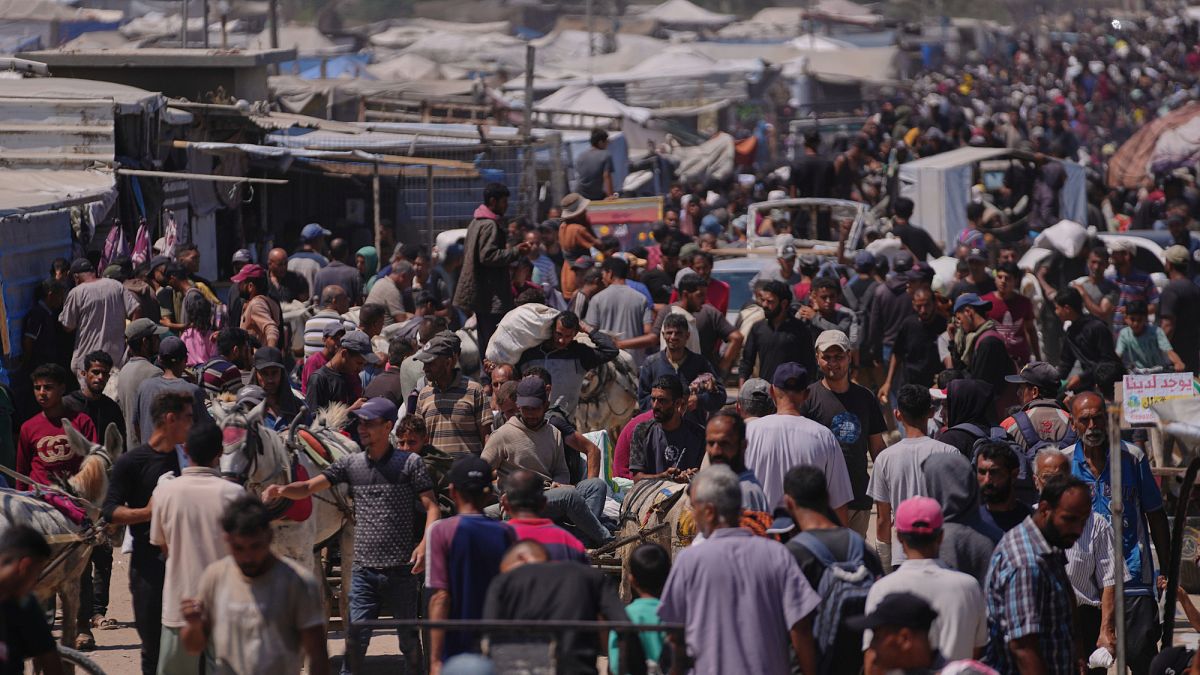

In a world increasingly interconnected, recent global events remind us of the complexities and challenges that nations face. Despite the difficulties, efforts towards resolution and understanding continue, offering hope for a more peaceful future.
In the Middle East, the humanitarian situation in Gaza remains critical. An Israeli airstrike tragically claimed the lives of 18 individuals in central Gaza City, adding to the mounting toll of civilians affected by the ongoing conflict. The strike targeted Palestinian police officers who were distributing aid amidst escalating tensions between Israel and Gaza. Meanwhile, in an effort to control the situation and aid distribution, the Israeli government has ordered the closure of the northern Zikim crossing, a vital route essential for delivering essentials to those in need. As airstrikes continue in southern Lebanon, targeting Hezbollah assets, the urgency for diplomatic efforts and a peaceful resolution becomes unmistakably clear.
In the occupied West Bank, tensions have also flared with reports of clashes between Israeli settlers and Palestinian villagers. Such incidents underscore the fragile state of peace in the region, highlighting the need for sustained dialogues and initiatives aimed at fostering coexistence and mutual understanding.
Turning to Europe, Greece has responded to a significant influx of migrants on the island of Crete by deploying naval resources to manage the situation. Over 7,300 migrants have arrived this year, largely from Libya, straining local resources and shelters. This development emphasizes the broader challenges faced by European nations regarding migration and the need for comprehensive policies that prioritize human dignity and cooperation among nations.
In Eastern Europe, developments in Ukraine suggest a resilient defense against Russian advances in the northeastern Sumy region. Ukrainian military officials have announced the halting of Russian progress in the area, a noteworthy accomplishment amidst the ongoing conflict. Furthermore, diplomatic engagements in Istanbul have led to another round of prisoner exchanges between Russia and Ukraine, demonstrating the importance of continued negotiations and efforts towards de-escalation.
In the United States, debates regarding recent military actions in Iran persist. The Trump administration has faced scrutiny regarding its claims surrounding airstrikes on Iranian nuclear facilities. While Secretary of Defense Pete Hegseth has defended the operation, citing the use of advanced AI modeling, some criticism arises from comparisons to past international decisions. Notably, concerns are voiced about the parallels drawn to the prelude of the Iraq war, highlighting the importance of careful consideration and transparency in decision-making processes.
These complex scenarios highlight the intertwined nature of global politics and humanitarian needs, showcasing the delicate balance that must be maintained. While challenges remain, the ongoing dialogues and diplomatic efforts serve as a testament to the potential for progress and peace, reminding us all of the importance of empathy and collaboration on the world stage.
Source: {link}
